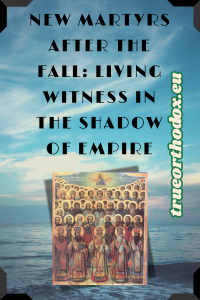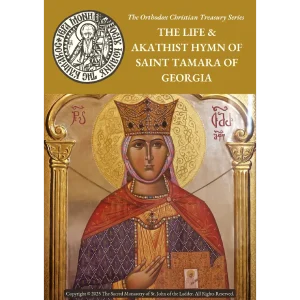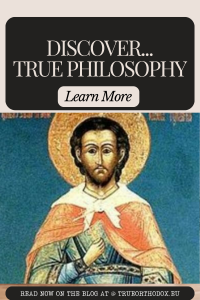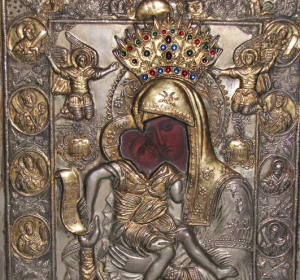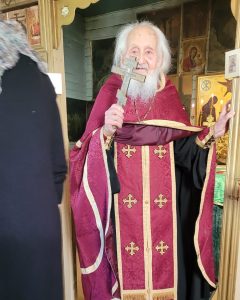Father Youssef Muhanna Al-Haddad: A Martyr and Pillar of Orthodox Revival
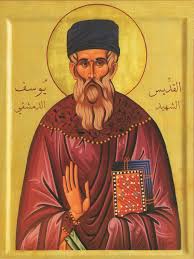
Translated from the Arabic by Elias Khoury
Father Youssef (Joseph) Muhanna Al-Haddad, whose full name was Youssef, son of Gergis Mussa, son of Muhanna Al-Haddad, was a distinguished Orthodox priest from Beirut whose heart belonged to Damascus. Often introducing himself with these words: “My origin is Beirut, my homeland is Damascus, and my faith is Orthodoxy,” Father Youssef was a man whose faith and zeal for the Church became a beacon of the Orthodox Christian revival in 19th-century Syria and Lebanon.
Early Life and Education
Youssef was born into a poor but devout family in Damascus in May 1793. His father, originally from Beirut, had moved to Damascus in the late 18th century to work in the textile industry. Youssef was the youngest of three sons. His early education was limited due to his family’s poverty, forcing him to work in silk weaving while seeking knowledge through self-study in his spare time. His passion for learning was inspired by his older brother Moses, who owned a small library but tragically died young, intensifying the family’s fears regarding Youssef’s own obsession with books.
Despite many obstacles, Youssef pursued education with determination, eventually studying under Sheikh Muhammad al-Attar, a renowned scholar in Damascus. He mastered Arabic, logic, and the rational sciences, but financial constraints forced him to abandon formal education once again. Undeterred, he continued studying religious texts, mastering both Arabic and Greek. His nights were spent reading the Holy Scriptures, comparing Arabic translations with the original Greek versions, and memorizing most of the Bible.
At the age of fourteen, Youssef began reading his late brother’s books, but this brought frustration as he struggled to understand much of what he read. Instead of giving up, his resolve only strengthened. By adulthood, he had learned Hebrew from a Jewish student, becoming proficient in several languages despite his humble beginnings.
Marriage and Priesthood
At nineteen, Youssef’s parents sought to temper his intellectual pursuits by arranging his marriage to a young woman named Mariam. Even on his wedding night, Youssef’s love for learning persisted, as he continued reading late into the night. His intellectual pursuits soon caught the attention of the Orthodox community in Damascus, and in 1817, at the age of twenty-four, Patriarch Seraphim ordained him as a deacon and, soon after, a priest. His wisdom, piety, and courage led to his promotion by Patriarch Methodius, who bestowed upon him the title of Megas Economos (Great Administrator).
Father Youssef’s powerful sermons at the Church of the Dormition of the Theotokos, also known as Al Mariamiyah, garnered him a reputation as an exceptional preacher. His eloquence, combined with compassion for the poor, the sick, and the downtrodden, made him beloved by many. During the yellow fever epidemic of 1848, his fearless dedication to helping the sick and burying the dead further elevated his standing in Damascus, though it cost him the life of his son, Muhanna.
The Patriarchal School and Educational Reforms
In 1836, Father Youssef took charge of the Patriarchal School of Damascus, enrolling the students he had already been teaching privately at his home. Over time, he expanded the school, appointing teachers and offering salaries to ensure its success. His dedication to educating Orthodox youth from across Syria and Lebanon helped prepare many for the priesthood, contributing significantly to the Orthodox Church’s revival.
In 1852, under Patriarch Ierotheos, Father Youssef opened a branch for higher theological studies within the school, aspiring to elevate its academic standing to rival other Orthodox theological institutes. Though his martyrdom in 1860 interrupted this vision, his efforts left a lasting legacy, and many of his students went on to become prominent leaders in the Church, including Patriarch Meletius Al Doumani, the first locally chosen Patriarch of Antioch since 1724.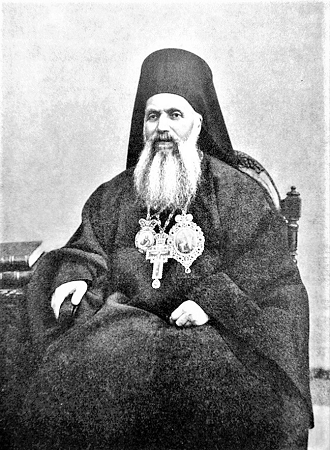
A Man of Faith, Humility, and Compassion
Father Youssef’s life was marked by poverty and humility. Despite his fame and accomplishments, he lived simply, often refusing offers of financial support. On one occasion, Patriarch Cyril II of Jerusalem invited him to teach Arabic in Jerusalem with a lucrative salary. Father Youssef declined, stating his commitment to serving the Orthodox faithful in Damascus, trusting that God would provide for him.
His pastoral care was characterized by patience, gentleness, and wisdom. He spoke to scholars in their language, offering profound theological insights, while also communicating with the simple and uneducated in a manner that touched their hearts. His ability to reconcile the faithful and guide them back to the Church was evident in his handling of disputes within the Orthodox community.
Conflict with Melkite Catholics and Protestants
Father Youssef was also involved in significant religious controversies of his time, particularly with the Melkite Greek Catholics and Protestant missionaries. In his dealings with the Melkites, who had split from the Orthodox Church, Father Youssef rejected coercion and instead relied on persuasion, prayer, and dialogue. He managed to win back many to Orthodoxy and would likely have succeeded further if not for his untimely death.
In his encounters with Protestant missionaries, Father Youssef’s knowledge and persuasive abilities silenced many who sought to undermine Orthodox teachings. His debates with Protestant leaders in Damascus and Hasbaya were instrumental in safeguarding the Orthodox faith from external influence.
Martyrdom and Legacy
In 1860, Father Youssef faced his greatest trial. The massacre of Christians by Druze and Muslim extremists, supported by the Ottoman authorities, swept through Lebanon and Syria. On July 10, after encouraging the faithful to remain strong and offering them the Holy Eucharist, Father Youssef was attacked and brutally martyred in Damascus. He was mutilated and dragged through the streets, bearing witness to his faith until the very end.
Father Youssef’s martyrdom sealed his legacy as a champion of Orthodoxy. His life of humility, scholarship, pastoral care, and ultimate sacrifice made him a pivotal figure in the Antiochian Orthodox Church’s revival. He inspired a generation of clergy and faithful to follow in his footsteps, and his contributions to education, theology, and pastoral care continue to be felt today.
Through the prayers of Father Youssef Muhanna Al-Haddad, the martyr of Damascus, may we find strength and guidance in our own lives, following his example of unwavering faith, dedication, and love for Christ. Amen.

